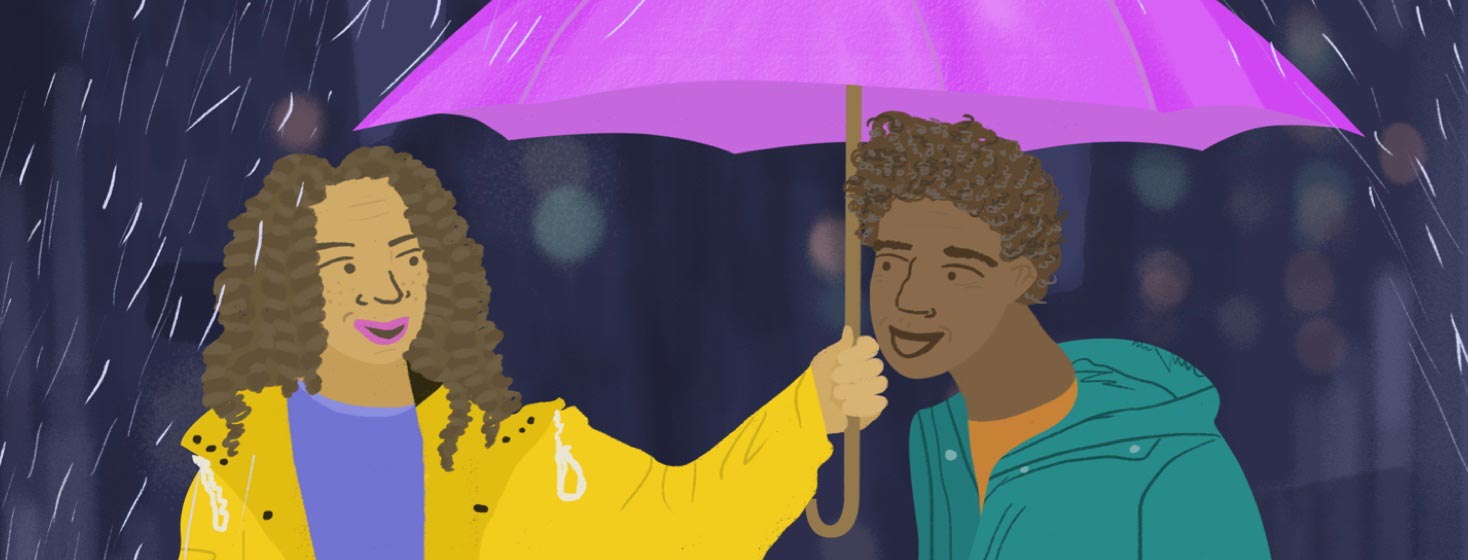A Day in the Life of a Sickle Cell Advocate (Part 2): Conversation With a Warrior
Do you ever have the feeling that you can't separate your advocate cap from your real life? I often have conversations with patients where I sometimes forget that I'm not in the conversation as a mom but as an advocate. Yes, I'm human too, and I would love to share some of my most memorable experiences with you.
Conversation with a sickle cell warrior
I recently had a conversation with a young gentleman. I came into contact with him through the hematologist because she wants to do a project with him and she asked me to find out if he is the right person for this. From the moment I got him on the phone, I was very impressed with his positive attitude, buoyant atmosphere, and smile.
His energy was so pleasant and as soon as he spoke, I became more curious. He talked about his life as a child with sickle cell disease and how it all changed when he got a little older. Ever since he was in high school, he noticed that his health condition was less taken into account. He has done every class in high school twice.
Not everyone has access to accommodations
In his country, they have no 504 plan. If you are sick, you are sick. If you have too many sick days, you can try again next school year. After having to do every high school class twice, he decided to stop school after graduating. He didn't want to go to school anymore and was afraid that he wouldn't get any cooperation at the university either. I listened to him as if to be a sickle cell advocate, but my mother's heart almost took over the conversation.
Each time, I caught myself trying to convince him to do some things differently. But what I also realized during the conversation is that everyone's circumstances are different. And why should I want to determine what is right or wrong for him? At one point, he shared his experience as a young adult dealing with discrimination in the workplace. He shared with me: “I didn't say during my job interview that I have sickle cell disease; otherwise, I wouldn't get that job.” So after a successful interview, he got the job.
But when he had multiple pain crises, he lost his job because he had too many sick days. I then said to him, “You would rather work for an employer who knows you have sickle cell disease and hires you knowing that you are assured of support.” I thought I sounded so sensible. And his reaction was a slap in the face. He indicated that he has often been honest about his illness and has therefore always been rejected. So now he does small jobs here and there. Sometimes he has a job, and sometimes he doesn't.
How can we make our warriors' lives easier?
My mother's heart jumped in all directions. I automatically think of my own child all the time. What if she is older? What if she is discriminated against? How can I ensure that I make my child resilient for the future? How can I help other adults get a job? It is such a tough situation that many do not think about.
Do you realize that such a young man will soon have a family, put bread on the table, and also have to worry about his health, possibly losing his job, and unpleasant situations in the hospital and elsewhere? How can we, as sickle cell advocates, make our warriors' lives easier? I don't have the exact answer, but I know that we can start with the things we can do so that they feel heard and understood.
Pursuing dreams
Luckily he also shared some nice stories because, as I said, he was so positive since the first day I met him. He told me about his high school teacher, whom he met and who helped him publish his collection of poems in his country. He writes beautiful poems about sickle cell disease, and his dream is to publish them internationally. So we're working on getting him to publish the poetry collection this year. A beautiful dream to which I want to contribute as a sickle cell advocate. Even though I can't take the pain away, I can help in another way. And yes! He is definitely the right person for the hematologist's project.
Our role as sickle cell advocates
I am learning every day that even if I can't help in the way the warriors would like me to help, there is always another way to do so. As sickle cell advocates, we sometimes get caught up in a story or situation but give yourself the time to look at it in another way.
During our time as an advocate, we network and build friendships, and sometimes we are able to give someone a good feeling. A very popular quote by Maya Angelou says: "People will forget what you said, people will forget what you did, but people will never forget how you made them feel.”

Join the conversation